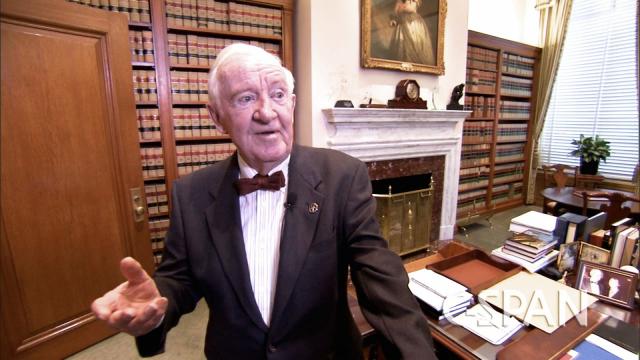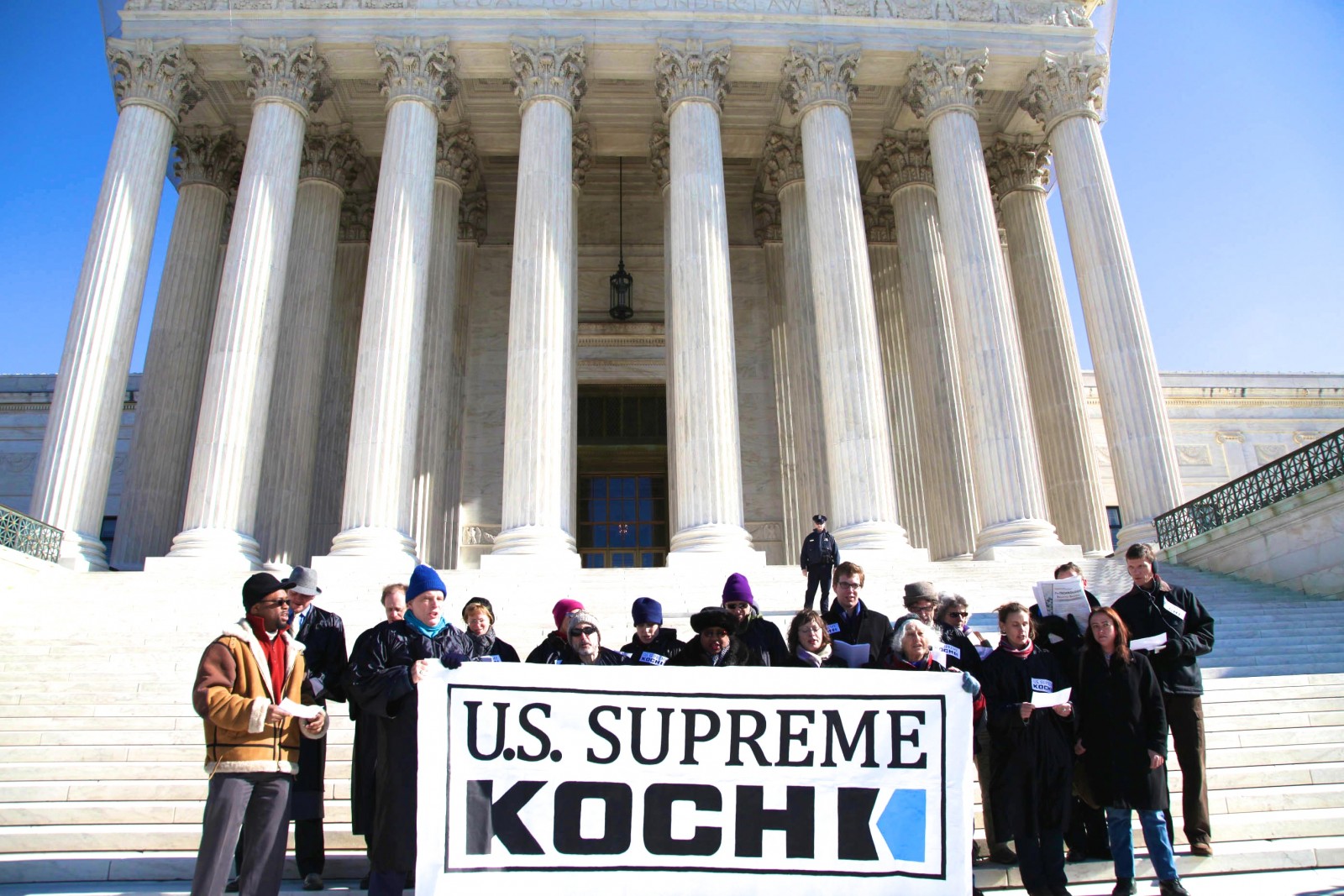
Justice John Paul Stevens, who turned 94 on Sunday, is a mild man with an even temperament. He has a reverence for the Supreme Court, on which he served for almost 35 years until his retirement in 2010, and he is fond of his former colleagues.
But there was a hint of anger in some of his remarks when I went to see him last week in his Supreme Court chambers. He said the court had made a disastrous wrong turn in its recent string of campaign finance rulings.
“The voter is less important than the man who provides money to the candidate,” he said. “It’s really wrong.”
He talked about what he called a telling flaw in the opening sentence of last month’s big campaign finance ruling. He filled in some new details about the behind-the-scenes maneuvering that led to the Citizens United decision. And he called for a constitutional amendment to address what he said was the grave threat to American democracy caused by the torrent of money in politics.
Last month’s decision in McCutcheon v. Federal Election Commission struck down aggregate contribution limits, allowing rich people to make donations to an unlimited number of federal candidates.
Chief Justice John G. Roberts Jr. started his controlling opinion with a characteristically crisp and stirring opening sentence: “There is no right more basic in our democracy than the right to participate in electing our political leaders.”
But that was misleading, Justice Stevens said. “The first sentence here,” he said, “is not really about what the case is about.”
The plaintiff, Shaun McCutcheon, an Alabama businessman, had made contributions to 15 candidates in the 2012 election. He sued so he could give money to 12 more. None of the candidates in the second group was running in Alabama.
Mr. McCutcheon was not trying to participate in electing his own leaders, Justice Stevens said. “The opinion is all about a case where the issue was electing somebody else’s representatives,” he said.
“The opinion has the merit of being faithful to the notion that money is speech and that out-of-district money has the same First Amendment protection as in-district money,” he said. “I think that’s an incorrect view of the law myself, but I do think there’s a consistency between that opinion and what went before.”
He was referring to the court’s earlier campaign finance decisions and, notably, to Citizens United. How that case was transformed from a minor, quirky case about a tendentious documentary into a judicial landmark has long been a source of mystery.
For starters, the case was argued twice. The first time was in March 2009, meaning it should have been decided by the end of the term that June. I asked Justice Stevens whether he, as the senior justice among the four dissenters, would have assigned the 2009 dissent.
“I would, and I did,” he said. And he more or less confirmed that the assignment went to Justice David H. Souter, as Jeffrey Toobin has reported in The New Yorker. “He was certainly a logical candidate to write the dissent,” Justice Stevens said of Justice Souter, who retired in 2009.
The draft dissent, which has not been made public, questioned the majority’s attempt to recast a modest case into a blockbuster that would overrule major precedents and allow unlimited campaign spending by corporations and unions.
The draft dissent caused the majority to pause, Justice Stevens said, thanks to “the strong expression of the feeling among the dissenters that procedurally the case was not in the proper posture to reach the issue that they ultimately decided.”
“I think it persuaded the majority that it would be better to have a re-argument so that they could not be accused of deciding something that had not been adequately argued,” he said. “And I think they were right to do that.”
The second argument was held in September 2009. When the court finally ruled in January 2010, emotions were still raw. Justice Souter was gone, and this time Justice Stevens assigned the dissent to himself.
“Essentially,” he wrote, “five justices were unhappy with the limited nature of the case before us, so they changed the case to give themselves an opportunity to change the law.”
The occasion for our talk was Justice Stevens’s new book, “Six Amendments: How and Why We Should Change the Constitution.” One of those amendments would address Citizens United, which he wrote was “a giant step in the wrong direction.”
The new amendment would override the First Amendment and allow Congress and the states to impose “reasonable limits on the amount of money that candidates for public office, or their supporters, may spend in election campaigns.”
I asked whether the amendment would allow the government to prohibit newspapers from spending money to publish editorials endorsing candidates. He stared at the text of his proposed amendment for a little while. “The ‘reasonable’ would apply there,” he said, “or might well be construed to apply there.”
Or perhaps not. His tentative answer called to mind an exchange at the first Citizens United argument, when a government lawyer told the court that Congress could in theory ban books urging the election of political candidates.
Justice Stevens said he would not go that far.
“Perhaps you could put a limit on the times of publication or something,” he said. “You certainly couldn’t totally prohibit writing a book.”
His own book has, in addition to the chapter on campaign finance, chapters on gun control, the death penalty, gerrymandering and aspects of state sovereignty. Each concludes with a proposed amendment.
With the exception of his hearing, which has faded a little in recent years, Justice Stevens seemed to show few signs of his age. But he said appearances deceive.
“I’m beginning to feel it, to tell you the truth,” he said. “I’m getting older.”
He lives in Florida for much of the year, but he recently had to give up a longtime routine. “I love to swim in the ocean,” he said. “And this year I have not gone in the ocean unless I had someone on the beach to help me get out. That has been a change, and my ocean swimming is dependent on the availability of handy lifeguards.”
3 WAYS TO SHOW YOUR SUPPORT
- Log in to post comments














